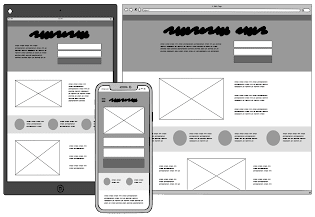Personalization Revolutionizing Mobile App Experiences
The Rise of Personalization in Mobile Apps
In the ever-evolving landscape of mobile technology, personalization has emerged as a
defining factor in enhancing user engagement and satisfaction. With the proliferation of
mobile apps across various domains, developers are increasingly focusing on tailoring experiences
to meet the unique preferences and needs of individual users. This trend towards personalization
marks a significant shift in the way mobile apps are conceived, designed, and deployed,
ushering in a new era of user-centric innovation.
Understanding the Power of Personalized Experiences
Personalization in mobile apps involves customizing content, features, and recommendations
to align with the specific preferences, behaviors, and demographics of each user. By leveraging
data analytics, artificial intelligence, and machine learning algorithms, developers can deliver
targeted experiences that resonate with users on a personal level. This not only enhances user
satisfaction but also fosters greater engagement and loyalty towards the app. From personalized
product recommendations to customized user interfaces, the possibilities of personalization are
endless.
Benefits of Personalized Mobile Experiences
The benefits of incorporating personalization into mobile apps are manifold. For users,
personalized apps offer a more intuitive and enjoyable experience by presenting content and
features that are relevant to their interests and preferences. This leads to increased user satisfaction,
higher retention rates, and ultimately, a stronger connection with the app. For developers,
personalization drives user engagement, boosts app performance, and opens up
new revenue streams through targeted advertising and in-app purchases.
Strategies for Implementing Effective Personalization
Implementing effective personalization in mobile apps requires a strategic approach
that encompasses data collection, analysis, and implementation. Developers can start by
gathering user data from various sources such as app usage metrics, user feedback, and
demographic information. They can then leverage advanced analytics tools and machine
learning algorithms to segment users into distinct groups based on their behavior and preferences.
Finally, developers can customize the app experience for each user segment by offering
personalized recommendations, content, and features.
Overcoming Challenges and Ethical Considerations
While personalization offers significant benefits, it also presents challenges and ethical
considerations, particularly concerning user privacy and data security. Developers must
ensure transparency and consent regarding the collection and use of user data, complying
with regulations such as GDPR and CCPA. Additionally, developers should prioritize data
security measures to protect sensitive information from unauthorized access or misuse. By
addressing these challenges proactively, developers can build trust with users and mitigate
potential risks associated with personalization.
The Future of Personalized Mobile Experiences
As technology continues to advance, the future of personalized mobile experiences looks
promising. Advancements in artificial intelligence, machine learning, and data analytics will
enable even more sophisticated personalization capabilities, allowing apps to anticipate and
fulfill users' needs and preferences in real-time. Moreover, emerging technologies such as
augmented reality and virtual reality will further enhance the personalization capabilities of
mobile apps, offering immersive and tailored experiences like never before.
Conclusion:
In conclusion, the era of personalization represents a transformative shift in the mobile app
landscape, with a focus on delivering tailored experiences that resonate with individual users.
By leveraging data-driven insights and advanced technologies, developers can create personalized
mobile apps that not only meet users' needs but also exceed their expectations. However, it is
essential for developers to prioritize user privacy, transparency, and consent throughout the
personalization process to build trust and foster long-term relationships with users. With the
right strategies and ethical considerations in place, personalized mobile apps have the potential
to redefine the way we interact with technology and enhance our digital experiences.
If you want to read about the future of immersive technology, look no further than
Augmented Reality (AR). AR blends digital elements with the real world, transforming
how we interact with information and our environment. From gaming to education and beyond,
AR offers endless possibilities. With AR, users can overlay digital content onto their
surroundings through their smartphones or AR glasses, creating interactive and engaging
experiences. As technology continues to advance, the potential applications of AR are
limitless, promising to revolutionize industries and reshape the way we perceive and interact with the world around us.

























0 Comments:
Post a Comment